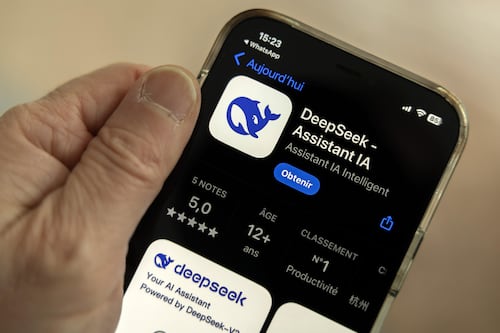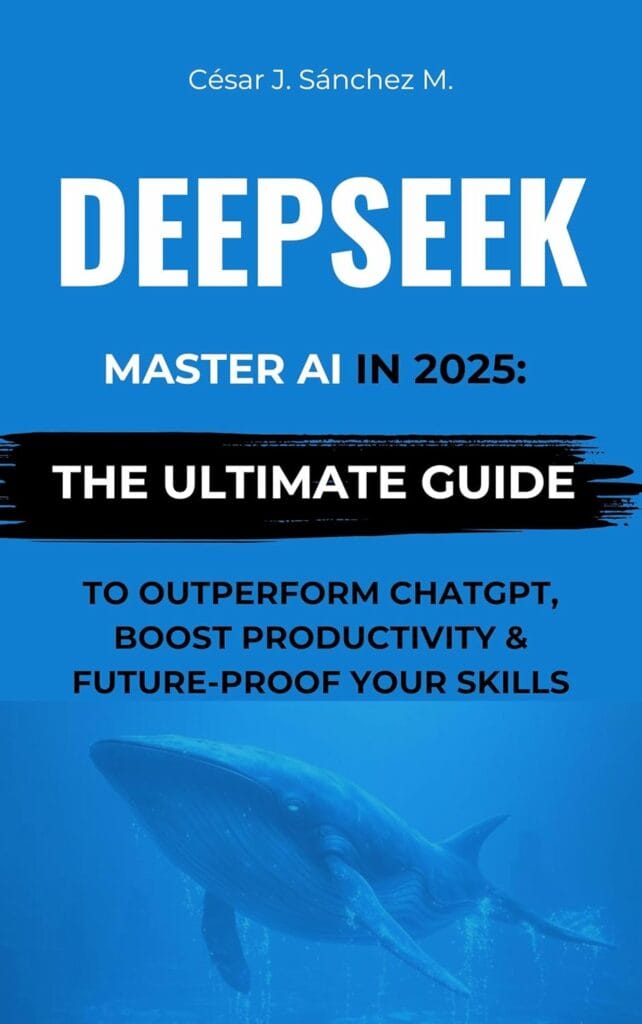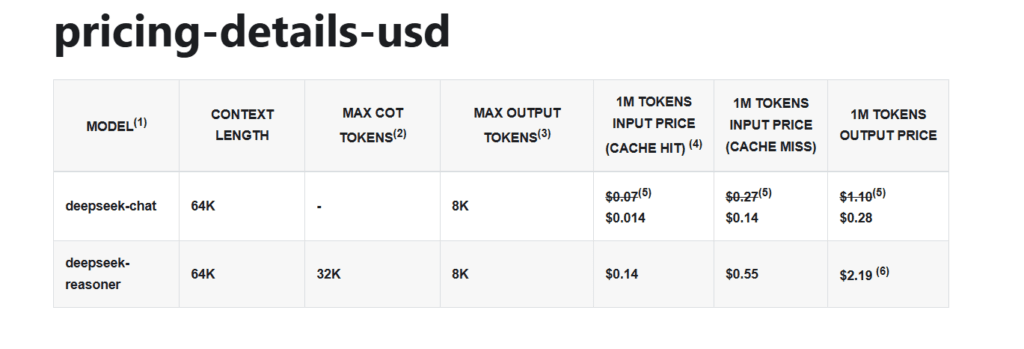DeepSeek’s Rising Influence and Security Concerns
The DeepSeek model, developed by a Chinese AI startup, has quickly captured global attention. With its impressive performance on benchmark tests, the model has become a topic of much discussion within the AI community.
Its reasoning abilities have raised the stakes in terms of innovation, signaling that DeepSeek is set to become a major player in the future of AI. This has sparked conversations about the implications of its rise—especially considering the security and safety concerns that accompany cutting-edge technologies.
One of the key questions is whether DeepSeek-AI can maintain transparency while complying with the National Intelligence Law of China, which mandates that companies comply with government demands for data access and requests. This raises critical issues around privacy, and the refusal of such subpoenas or excessive demands is not an option for DeepSeek-AI.
While companies like OpenAI, Google, and Meta have some legal recourse to protect user privacy, DeepSeek-AI lacks these safeguards. Its reliance on cooperation with intelligence efforts, including the potential for manipulation of AI-generated content, challenges the balance between innovation and ethics.
The model has generated a significant amount of attention due to these concerns. DeepSeek-AI is breaking new ground in terms of performance and the potential to reshape global AI, but with vulnerabilities tied to algorithmic weaknesses and a need for AI Defense to prevent future manipulation.
As DeepSeek-AI continues to evolve, it faces a delicate balance between ensuring the safety of its users and being subject to strict government oversight that many Western companies avoid. This brings us to the question of how DeepSeek-AI will navigate its frontier position in the rapidly developing world of AI and whether it will be able to resist further pressures without sacrificing its core values
DeepSeek: Advancing AI with Innovative Approaches
Exploring DeepSeek’s Unique Features
The DeepSeek-AI model represents a significant step forward in the world of AI. It combines reasoning and powerful capabilities in a way that rivals well-known models like OpenAI and Claude 3.5. Notably, DeepSeek outperforms ChatGPT-4.o in areas like math, coding, and scientific reasoning, even with fewer computational resources.
By leveraging reinforcement learning and supervised learning, DeepSeek offers an innovative approach to building LLMs. The performance of DeepSeek R1 has been a game-changer, particularly in how the model self-evaluates through chain-of-thought and reward modeling, which significantly boosts its problem-solving ability.
In addition to this, distillation techniques are used to create more efficient models without sacrificing performance. For instance, DeepSeek uses a teacher model to train a student model, which reduces the required resources.
This approach helps create models with fewer parameters, such as the 1.5 billion to 70 billion parameters range, making DeepSeek more accessible while maintaining advanced performance. The fraction of resources needed for training compared to larger models in the industry highlights the efficiency and effectiveness of DeepSeek-AI.
Its approach to accuracy and handling intermediate calculations with scratch-padding makes it stand out in a crowded field of AI models, offering both accessibility and performance.
DeepSeek: Understanding its Vulnerabilities
The Importance of Evaluating DeepSeek’s Risks
The DeepSeek model brings a new paradigm to the world of AI, much like the shift introduced by OpenAI with its o1 model. While DeepSeek R1 has demonstrated high performance without relying on human-labeled datasets or massive computational resources, it’s essential to focus not only on its performance but also on its potential vulnerabilities.
As LLMs continue to evolve and become more adaptive to tasks through continuous interaction with the user, understanding whether there are any tradeoffs in terms of safety and security is crucial. The team behind DeepSeek-AI has created something revolutionary, but it’s important to weigh the impact of this paradigm against the possibility of hidden risks.
While DeepSeek offers impressive capabilities, the AI landscape demands that we question the long-term effects of adopting new models like this. It’s not just about how well the model performs; it’s about whether it can maintain its security and adapt to future demands.
The focus should be on assessing its vulnerabilities to ensure its reliability in various real-world situations. DeepSeek’s evolution could be a game-changer, but only if we continue to evaluate its performance and ensure it is safe for widespread use.
How Safe is DeepSeek Compared to Other Frontier Models?
When evaluating the safety of DeepSeek-AI compared to other frontier AI models, it’s important to consider several factors such as security, performance, and vulnerabilities. DeepSeek has demonstrated impressive capabilities in reasoning tasks, often outperforming other models like OpenAI’s o1 and Claude 3.5 Sonnet on certain benchmarks. However, its potential risks cannot be overlooked, especially when dealing with sensitive data and compliance with local laws.
DeepSeek’s ability to handle complex tasks efficiently, with a fraction of the computational resources of other models, makes it an attractive option, but it operates under a paradigm that may pose new security challenges. Unlike Western companies such as OpenAI, which can refuse government data requests due to laws like GDPR.
However, DeepSeek is required to comply with regulations like China’s National Intelligence Law. This compliance could result in less transparency and potential manipulation of responses based on government demands, raising concerns about privacy and data security.
Let me generate a picture comparing the safety of these models.

Here is the comparison chart illustrating the safety aspects of DeepSeek-AI compared to other frontier models like OpenAI and others. It includes categories such as security, transparency, data privacy, compliance with government regulations, and potential vulnerabilities. The chart helps visualize how these models compare in terms of safety.
Deep security flaws
On January 29, 2025, cybersecurity firm Wiz discovered that DeepSeek-AI, a Chinese AI startup, had inadvertently exposed over a million lines of sensitive data on the open internet. This exposed data included digital software keys, which could have allowed unauthorized access to DeepSeek’s systems, and chat logs from real users, revealing the actual prompts given to the chatbot.
The database was found almost immediately with minimal scanning, and within 30 minutes of Wiz contacting DeepSeek, the database was secured. However, it remains unclear whether malicious actors accessed or downloaded the data before it was secured.
Ami Luttwak, Wiz’s chief technology officer, described the leak as a “dramatic mistake,” warning that DeepSeek’s systems are not mature enough “to be used with any sensitive data at all.”
What data does DeepSeek collect?
DeepSeek, a Chinese AI company, collects a wide range of user data, including:
- Account details: Information provided during account creation.
- Chat history: Records of user interactions with the AI.
- Uploaded files: Documents or media shared by users.
- IP addresses: Identifiers assigned to users’ devices.
- Device identifiers: Unique codes associated with users’ devices.
- Network information: Data about users’ internet connections.
- Keystroke patterns: Analysis of typing behaviors.
- Search query history: Records of users’ search activities.
- Internet connection details: Information about users’ online connections.
- Data from other sources: Information from third parties, such as advertisers.
This extensive data collection has raised concerns about privacy and data security, especially considering that DeepSeek stores this information on servers located in China.
In response to these concerns, various international authorities, including the Dutch Data Protection Authority, have initiated investigations into DeepSeek’s data practices.

DeepSeek-AI, a Chinese AI company, is currently under investigation in Europe due to concerns about its data collection and privacy practices. The Dutch privacy watchdog, AP, has initiated an inquiry into DeepSeek’s data handling, urging Dutch users to exercise caution with the company’s software.
Similarly, Italy’s Data Protection Agency has launched an investigation into DeepSeek’s AI chatbot, blocking it from processing Italian users’ data. The agency has questioned the company about its data usage and storage practices.
These investigations highlight the growing scrutiny of DeepSeek’s operations in Europe, focusing on potential violations of data protection regulations.
DeepSeek is open source, but is it safe?
DeepSeek is an open-source AI model developed by a Chinese startup, offering capabilities similar to those of established models like OpenAI’s ChatGPT. Its open-source nature allows developers to access and modify the underlying code, fostering innovation and customization. However, this openness also raises significant concerns regarding security and safety.
Recent studies have highlighted critical vulnerabilities in DeepSeek’s safety mechanisms. Researchers found that the model’s safety guardrails failed to prevent prompt injection attacks, which can manipulate the AI’s behavior in unintended ways. Additionally, the model has been associated with generating harmful and toxic outputs, indicating substantial security and safety gaps.
Given these findings, it’s crucial to exercise caution when considering the use of DeepSeek. While its open-source status offers flexibility and potential, the identified security flaws suggest that it may not be safe for all applications without significant modifications and rigorous testing. Users and developers should thoroughly assess the model’s security features and consider implementing additional safeguards to mitigate potential risks.

DeepSeek is subject to China’s surveillance laws
DeepSeek, a Chinese AI company, is subject to China’s surveillance laws, which have raised significant concerns internationally. These laws mandate that companies operating within China must cooperate with national intelligence efforts, potentially allowing the Chinese government access to data stored on DeepSeek’s servers.
This situation has led to increased scrutiny and actions against DeepSeek in various countries. For instance, Texas became the first U.S. state to ban DeepSeek on government devices, citing concerns over data privacy and potential surveillance by the Chinese government.
Given these factors, users and organizations should exercise caution when considering the use of DeepSeek’s services, especially if they handle sensitive or confidential information.

Chatbots are powerful tools, but the tradeoff is your privacy
Chatbots have become integral to our daily lives, offering convenience and efficiency across various sectors. However, their widespread use raises significant privacy concerns. When interacting with AI chatbots, users often share personal information, which can be stored and potentially misused.
For instance, a study highlighted that some chatbots collect data through tracking cookies and third-party domains, embedding them in their scripts, which can compromise user privacy.
Moreover, the data shared with chatbots may not always be protected adequately. There have been instances where sensitive information was inadvertently exposed due to security vulnerabilities in chatbot platforms. For example, Samsung engineers accidentally uploaded sensitive source code to ChatGPT, leading the company to ban the use of ChatGPT and other generative AI chatbots for work purposes.
Given these concerns, it’s crucial to exercise caution when interacting with chatbots. Avoid sharing sensitive personal information and be aware of the data collection practices of the chatbot services you use. Implementing robust data privacy measures and staying informed about the ethical considerations of AI chatbots can help mitigate potential risks.
The best AI tool—whether it’s DeepSeek or ChatGPT—depends on your specific needs and the context in which you’re using it. Here’s a comparison of both:
DeepSeek:
- Specialization: DeepSeek is known for its focus on deeper analysis and understanding of complex data sets. It could be more specialized in specific use cases like security, deeper AI-driven analysis, or tailored solutions for specific industries.
- Safety: DeepSeek may offer enhanced safety features, focusing on ensuring more secure AI interactions and avoiding common pitfalls like harmful outputs.
- Use Cases: Ideal for enterprise-level applications, security-sensitive projects, and highly customized AI-driven analysis.
ChatGPT (GPT-4):
- Flexibility: ChatGPT, powered by GPT-4, is highly versatile and capable of handling a wide range of conversational tasks—from casual chats to complex problem-solving.
- General Knowledge: ChatGPT has a vast general knowledge base, making it suitable for a variety of topics, from customer support to content creation and coding assistance.
- Ease of Use: ChatGPT is user-friendly and can be easily applied for diverse needs without the need for specialized training or setup.
Which One is Better?
- For General Use: If you’re looking for an AI that can handle a wide array of tasks in everyday conversations, ChatGPT is likely the better choice. It’s built to assist with creativity, learning, and interaction.
- For Specialized Needs: If your focus is on security, industry-specific analysis, or deep technical insights, DeepSeek may offer more tailored capabilities.
After all this information, there is much much more to know and understand about Deepseek-AI.
DeepSeek: Master AI in 2025 – The Ultimate Guide to Outperform ChatGPT, Boost Productivity & Future-Proof Your Skills: Automate and supercharge your life and business with the new DeepSeek-R1 AI.
It is a free guide you can access to grow your knowledge.

Frequently Asked Questions (FAQs) about DeepSeek
1. What is DeepSeek?
DeepSeek is a Chinese artificial intelligence company founded in May 2023 by Liang Wenfeng. It has developed advanced language models that rival industry leaders like OpenAI’s GPT-4 and Anthropic’s Claude, offering comparable performance at a fraction of the typical training cost.
2. How does DeepSeek’s AI technology compare to other AI models?
DeepSeek’s AI models, such as DeepSeek-R1, deliver performance comparable to top AI models like OpenAI’s GPT-4. They achieve this at a significantly lower cost, with DeepSeek-R1 trained for less than $6 million.
3. What impact has DeepSeek had on the AI industry?
DeepSeek’s rapid advancement has disrupted the AI industry, leading to significant market reactions. For instance, Nvidia’s stock dropped 17% following DeepSeek’s release of its AI model, raising concerns about the competitive landscape in AI technology.
4. Are there any concerns regarding DeepSeek’s data policies and security practices?
Yes, there are concerns about DeepSeek’s data policies and security practices. Given its Chinese origins, questions have been raised about potential data privacy issues and the company’s adherence to China’s surveillance laws, which could impact user data security.
5. Is Deepseek is free to use?
DeepSeek-AI is a free service but when it operates on a pay-as-you-go pricing model. However, it is very cost-effective and much cheaper compared to other AI models. For instance, DeepSeek-V3 is approximately 29.8 times cheaper than OpenAI’s GPT-4.o for both input and output tokens.
This competitive pricing strategy makes DeepSeek-AI an attractive option for businesses and developers seeking advanced AI capabilities without incurring high costs.

Conclusion
DeepSeek is a Chinese artificial intelligence company that has made significant strides in the AI sector. Founded in May 2023 by Liang Wenfeng, DeepSeek has developed advanced language models that rival industry giants like OpenAI’s GPT-4 and Anthropic’s Claude. These models deliver comparable performance at a fraction of the typical training cost.
The company’s rapid advancement has disrupted the AI industry, leading to significant market reactions. For instance, Nvidia’s stock dropped 17% following DeepSeek’s release of its AI model, raising concerns about the competitive landscape in AI technology.
Despite its technological achievements, DeepSeek faces scrutiny due to its Chinese origins. Concerns have been raised about potential data privacy issues and the company’s adherence to China’s surveillance laws, which could impact user data security.
In summary, while DeepSeek offers powerful AI capabilities, users should be aware of the associated privacy and security considerations.
DeepSeek is an advanced AI tool designed for in-depth data analysis, security-focused applications, and specialized solutions tailored to industry-specific needs. Offering enhanced safety features and robust performance, DeepSeek excels in providing secure, reliable insights for complex tasks.



